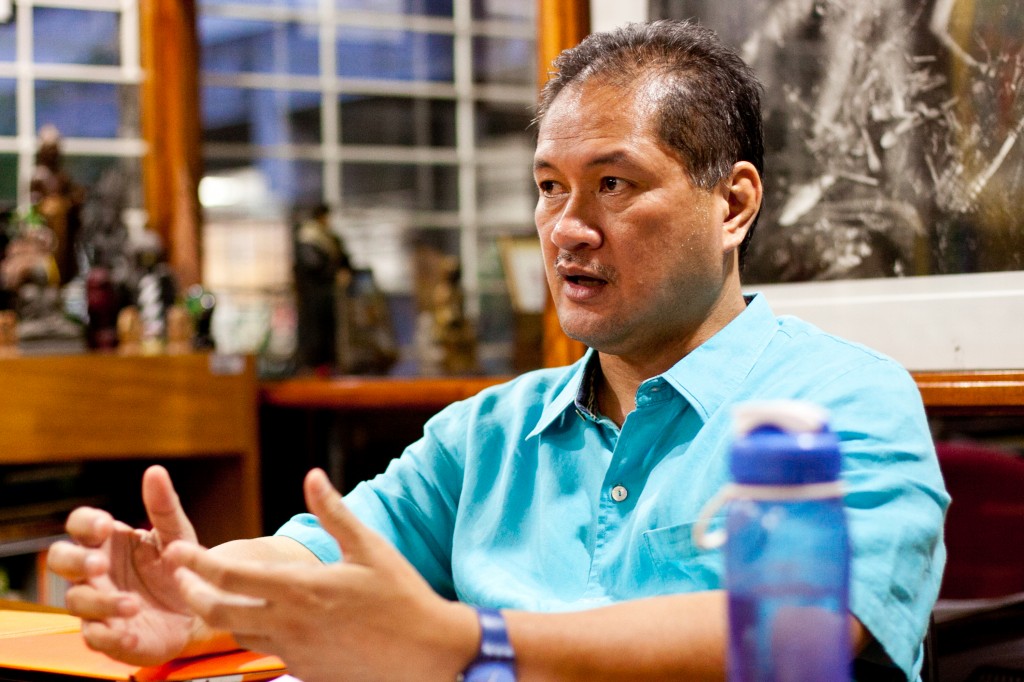IN URGING for good governance, several Ateneo leaders expressed mixed sentiments regarding the new line-item budgeting system proposed by President Benigno Aquino III.
During an unscheduled press conference last August 23, Aquino stated that a new line-item budgeting system would replace the current Priority Development Assistance Fund (PDAF) in the 2014 national budget.
The PDAF is a single or lump-sum item in the annual General Appropriation Act (GAA), through which each congressman and senator acquires 70 million pesos and 200 million pesos, respectively.
The PDAF gives legislators the freedom to allocate their budget with relative ease to any project they wish to pursue.
Meanwhile, the line-item budgeting system will require legislators to enter into the GAA a detailed list of all the projects that they want funded. Only then will the money be taken from their pork barrel allocation.
With this national issue at hand, a number of people have already expressed their wish for the government to abolish the PDAF completely due to the political patronage it promotes. Meanwhile, others approve of the new systemic reform because it advocates transparency and accountability.
University President Jose Ramon Villarin, SJ supports Aquino’s call for a line-item budgeting system.
“It’s a first step in the right direction. The point is accountability and location,” he said.
Like Villarin, Ateneo School of Government (ASoG) Dean Antonio La Viña agrees with Aquino’s decision.
However, La Viña said “I’m open [to the idea of], but I’m also not going to be giving him (Aquino) a standing ovation right now.”
He believes that whether or not the line-item budgeting proposal is better than the PDAF and its predecessor, the Countrywide Development Fund (CDF), still “remains to be seen.”
The CDF was in place from former President Corazon Aquino’s administration until that of Joseph Estrada in order to aid those who found themselves unemployed as a result of the decline in the global economy.
Corruption-prone system
Regardless of the rationale of the line-item budgeting system for transparency accountability, La Viña pointed out that for as long as money is involved, there will be corruption.
He also said that the proposed budgeting system is still similar to the PDAF, as it concerns the same concepts of budget and allocation.
Like La Viña, The Ateneo Assembly President Harvey Chua said that people can always find ways to subvert and turn the new system in their favor.
Meanwhile, The Ateneo Assembly Executive Director for Research and Advocacy Exequiel Salcedo commented that corruption and the quality of public services do not go hand-in-hand.
“Even if they did [go hand-in-hand], what good are quality government projects and infrastructure if they were erected at the cost of public trust and accountability?”
Opposition to pork abuse
Both The Ateneo Assembly and the Christian Union for Socialist and Democratic Advancement (Crusada) released stands expressing their opposition to the misuse of the PDAF last August 18 and 25, respectively.
The Ateneo Assembly stated that the pork barrel has always impeded the reform efforts of the government and the implementation of relevant programs in the nation.
The statement posed a challenge to the administration to take a step towards good governance. This included a call for legislators to be transparent regarding how they spend their money.
Meanwhile, Crusada stated that the pork barrel “denies the poor to become active participants in the life of society.”
According to them, the misuse of the pork barrel degrades the dignity of the work done by every citizen, as all workers in the country are “barred from seeing the direct connection that their hard work has to [offer] to the progress of the country.”
#MillionPeopleMarch
Three days after Aquino’s proposal to replace the PDAF, the administration, faculty and student groups from the Ateneo took part in the #MillionPeopleMarch held at the Luneta Park on August 26.
The march was a social media-organized initiative to gather citizens across the country to protest against the misuse of the PDAF.
ASoG Dean La Viña commented that there were protests because the people are “upset” because their taxes were being exploited by government officials for personal gain.
However, The Ateneo Assembly President Chua fears that this might have only been a one-time effort.
“[The] rally was a good start, but we need greater citizen engagement against corruption if we are going to make any difference,” he said.
BUB as an alternative
In contrast to the budgeting system reform put forward by Aquino, another proposal is the Senate Bill 1524, or the “Bottom Up Budgeting Act 2013” filed by Senator Teofisto Guingona III and released last September 5.
The bill seeks to abolish the PDAF and will institutionalize a bottom-up budgeting (BUB) system.
The BUB aims to allocate the amount intended for the PDAF to the different national government agencies so as to ensure greater transparency, accountability and openness in the budget preparation process.
According to him, the BUB system will break the system of having to appropriate funds to representatives only to have the funds misused.
However, The Ateneo Assembly Executive Director for Research and Advocacy Salcedo explained, “BUB is not a perfect system. Corruption will definitely take its new form, one way or another.”
“But if our goal is to begin eliminating corruption in the country, we begin with the most powerful body: The national legislature,” he added.
On proposals and insights
With the new system to be implemented in the 2014 national budget, Ateneo leaders also suggested measures regarding how to improve accountability and transparency given the budgeting system.
University President Villarin proposed that the role of Filipinos is to now search for the discretionary funds that are meant inherently for the executive branch rather than the hands of the legislators.
To put up a culture of good governance, La Viña believes that the approval of the Freedom of Information (FOI) bill is critical.
The FOI bill recognizes the right of the people to information on matters of public concern and adopts a policy of full public disclosure involving public interest.
“The Freedom of Information [bill]… will make it possible for us to actually… monitor our government [if] they are not doing foolish things,” he said.
As of press time, the House of Representatives joined Aquino’s stand for transparency and accountability. On September 5, the House decided to scrap the 27-billion-peso provision of the PDAF from the proposed 2.268-trillion-peso 2014 national budget.
Another rally, “EDSA 2013” or “EDSA Tayo,” was organized on September 11 to protest against the pork barrel fund, hoping to continue the momentum of the #MillionPeopleMarch.
Likewise, the Ateneo de Manila University joined the University of the Philippines-Diliman and Miriam College (MC) in a rally calling for the abolishment of the pork barrel. Called “Katipunan Kontra Korupsyon,” it was held outside MC Gate 1 last September 11.







